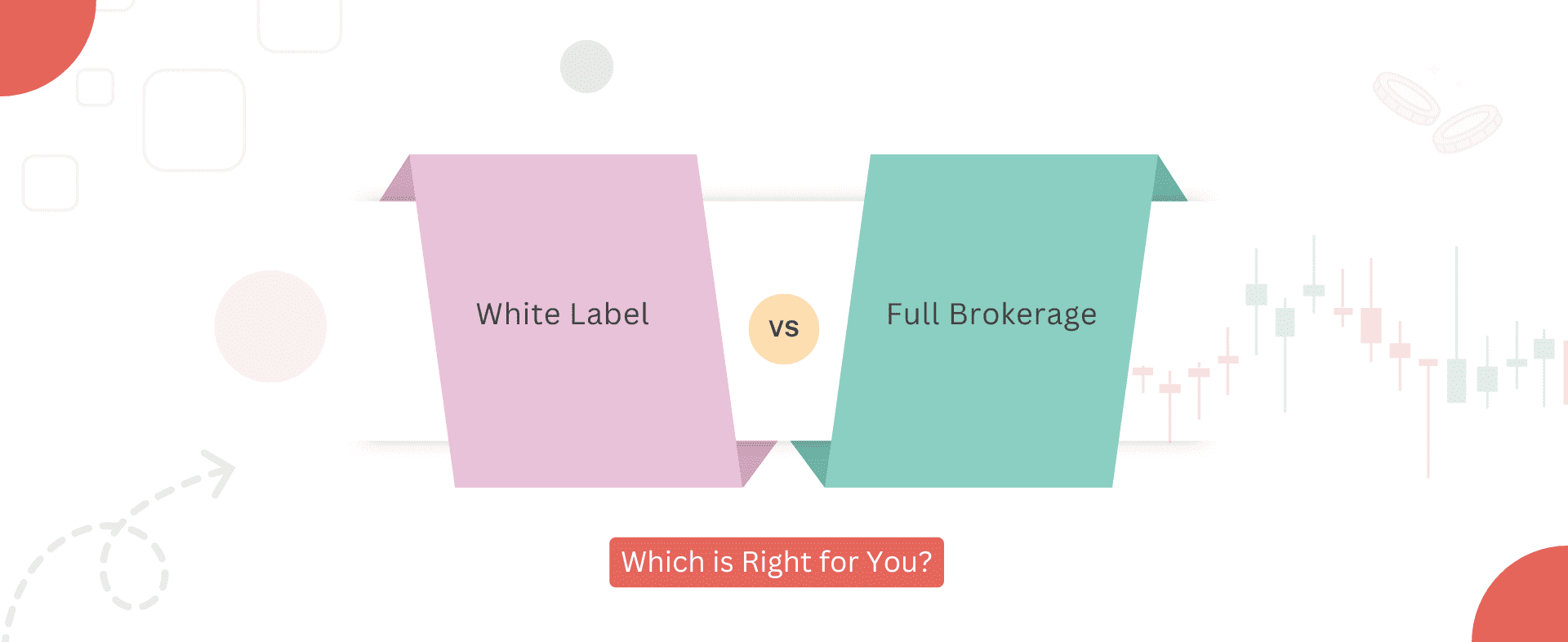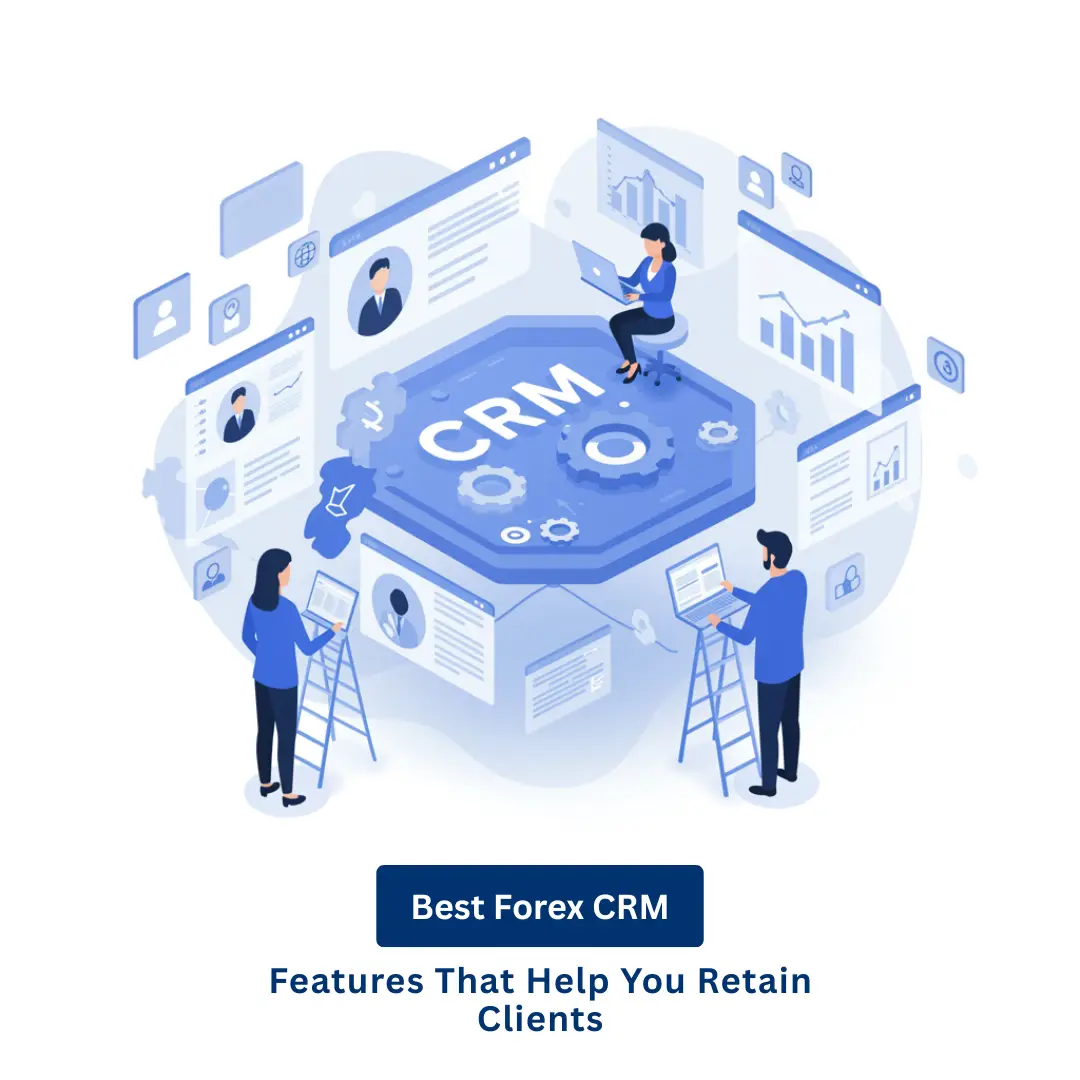
White Label vs. Full Brokerage: Which is Right for You?
Introduction
Starting a forex brokerage can be lucrative, but one of the most important decisions you’ll face is choosing between a white label solution or setting up a full brokerage. Each option comes with distinct advantages and trade-offs, depending on your budget, timeline, and long-term goals. In this blog, we break down the key differences to help you make an informed decision.
Understanding White Label Solutions
A white label solution allows you to operate under your own brand while leveraging an established brokerage’s trading infrastructure. This option enables quick market entry without the need to build proprietary technology from scratch.
Key Features of White Label Solutions:
- Pre-built Platform: Use an existing trading platform like MT4, MT5, or cTrader under your branding.
- Cost-Effective: Significantly lower startup costs compared to developing proprietary platforms.
- Faster Market Entry: Launch your brokerage in weeks rather than months.
- Minimal Technical Requirements: The technology and backend are handled by the white label provider.
- Limited Customization: While branding is allowed, platform customization is limited.
Advantages of White Label:
- Reduced Risk: By using proven platforms, you avoid the trial-and-error phase of software development.
- Operational Efficiency: Focus on marketing and client acquisition rather than infrastructure management.
- Scalability: Easily scale up as your client base grows.
Limitations of White Label:
- Profit Sharing: In many cases, part of the profits go to the white label provider.
- Dependency: You rely on the provider for updates, maintenance, and infrastructure.
- Limited Control: The trading environment and technology stack cannot be fully customized.
What is Full Brokerage?
A full brokerage involves building your trading infrastructure from the ground up, giving you complete control over your operations. This approach typically requires obtaining licenses, developing or licensing trading platforms, and handling all backend processes.
Key Features of Full Brokerage:
- Complete Autonomy: Full control over trading conditions, spreads, and platform features.
- Brand Authority: Establish yourself as a standalone brand with proprietary technology.
- Customizable Trading Experience: Develop unique features to differentiate from competitors.
- Higher Profit Margins: No revenue sharing with a white label provider.
Advantages of Full Brokerage:
- Unlimited Customization: Tailor the platform and trading conditions to fit your target market.
- Brand Equity: Build long-term brand recognition and client loyalty.
- Strategic Independence: Operate without external dependencies.
Challenges of Full Brokerage:
- High Startup Costs: Requires significant investment in technology, licensing, and infrastructure.
- Time-Intensive: Setting up a full brokerage can take several months to over a year.
- Complexity: Requires expertise in technology, compliance, and operations.
White Label vs. Full Brokerage: Key Comparison
| Factor | White Label Brokerage | Full Brokerage |
|---|---|---|
| Cost | Lower startup costs | High initial investment |
| Time to Market | Fast (2-6 weeks) | Slow (6-12 months) |
| Customization | Limited | Full control |
| Control & Ownership | Provider-dependent | Full autonomy |
| Technical | Minimal | High |
| Factor | White Label Brokerage | Full Brokerage |
|---|---|---|
| Requirements | ||
| Profit Margins | Shared | 100% retention |
| Risk | Lower | Higher |
| Scalability | High | High |
Which Option is Right for You?
Choose White Label If:
- You want to enter the market quickly with limited capital.
- Your focus is on client acquisition and marketing rather than technology.
- You are new to the brokerage business and prefer lower risk.
Choose Full Brokerage If:
- You have the capital to invest in infrastructure and licensing.
- Your goal is to build a long-term, independent brand with full operational control.
- You seek to offer unique trading experiences or products that differentiate you from competitors.
Conclusion
Both white label solutions and full brokerages have their place in the forex market. While white label solutions provide a low-cost, low-risk entry point, full brokerages offer unparalleled control and long-term growth potential. Carefully assess your budget, expertise, and goals to choose the path that aligns with your business vision.


